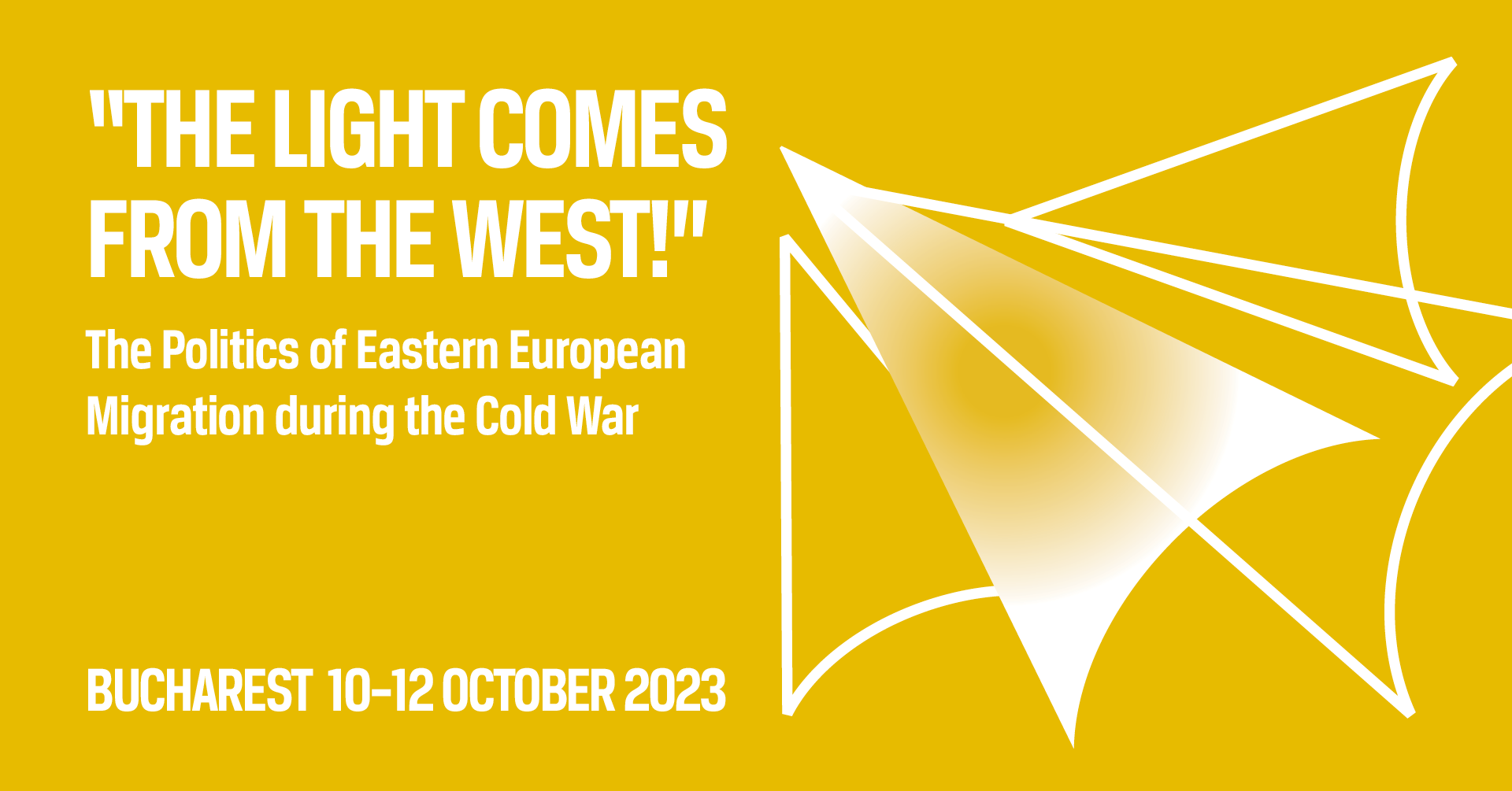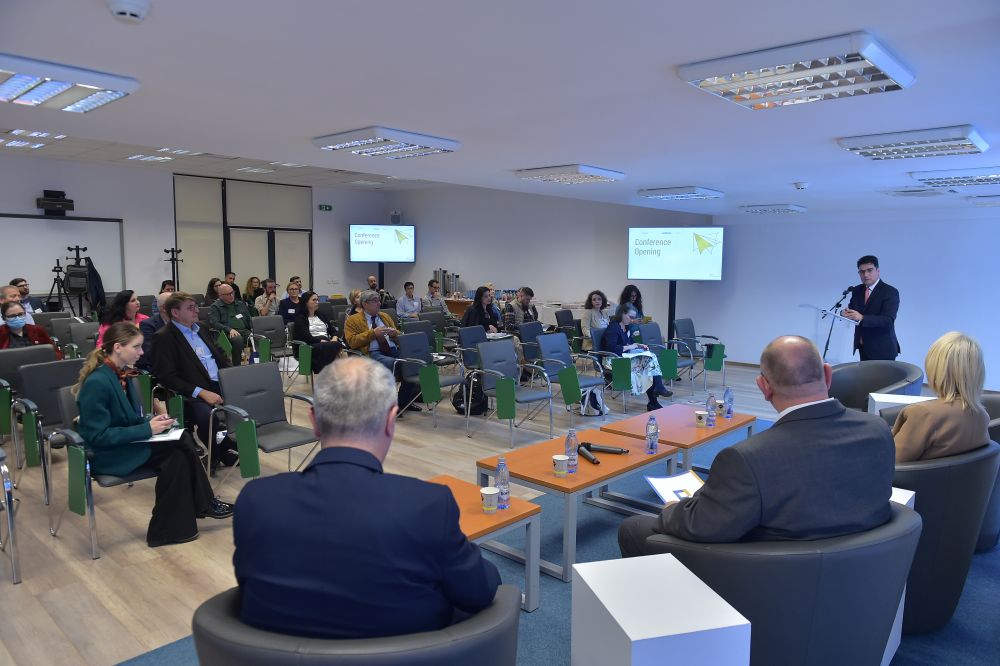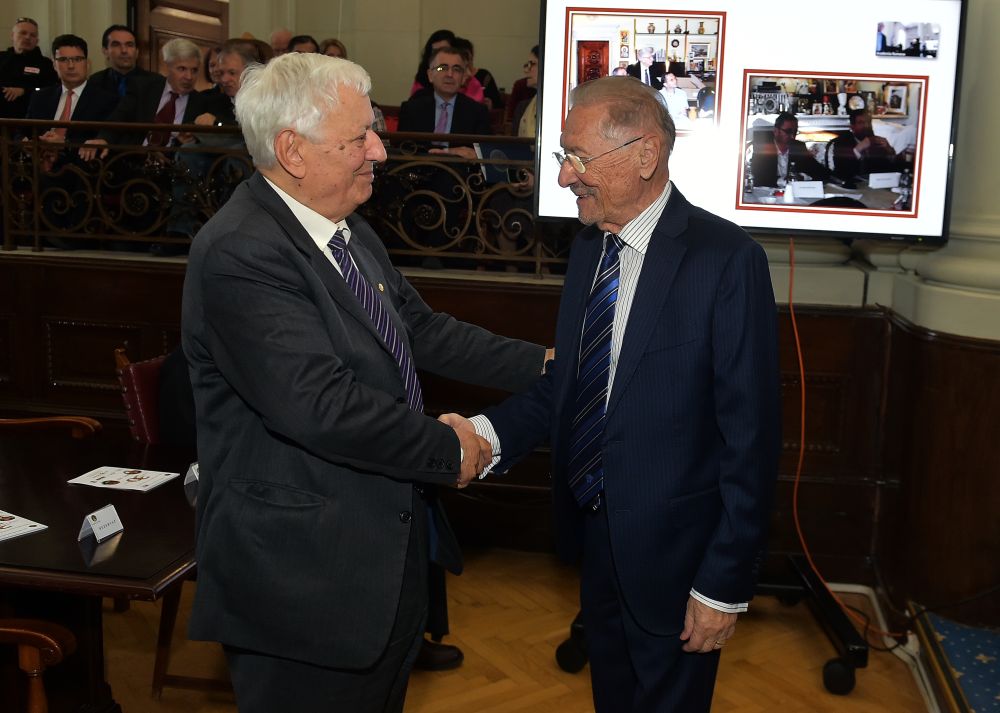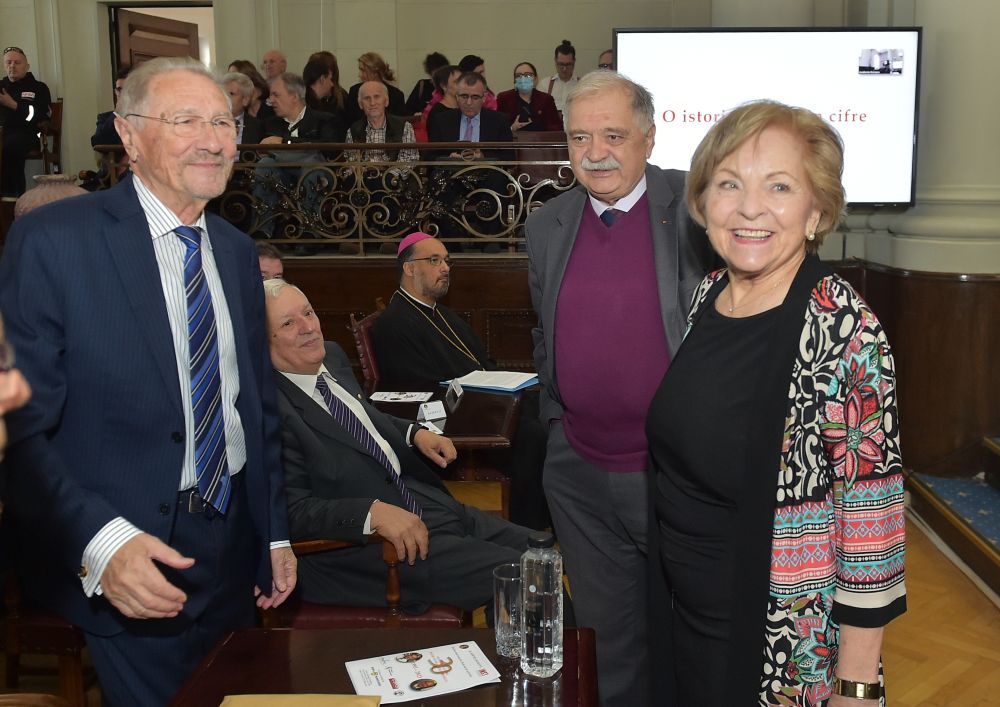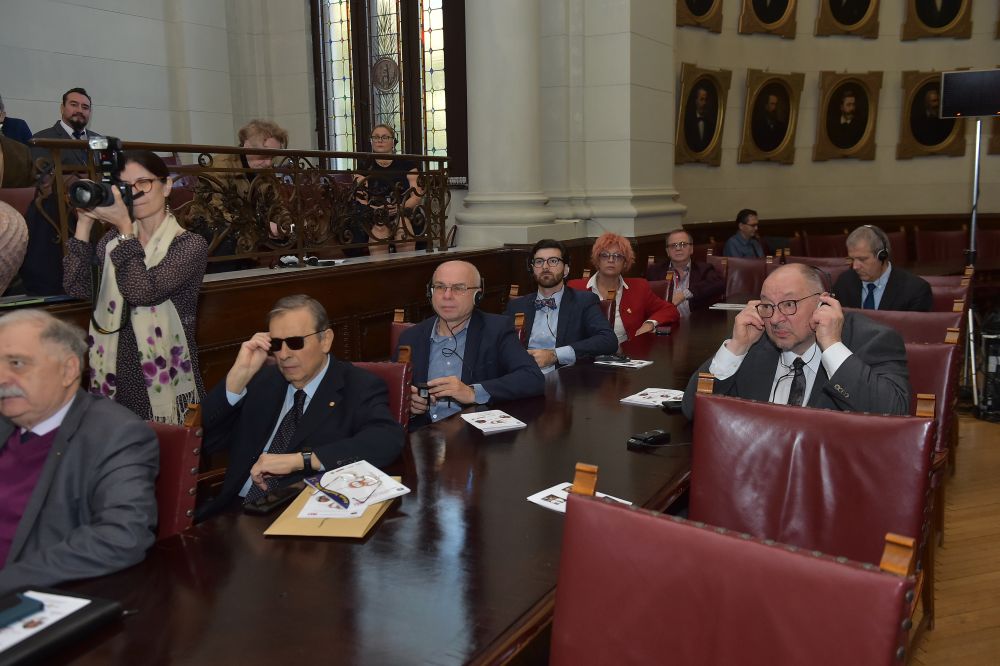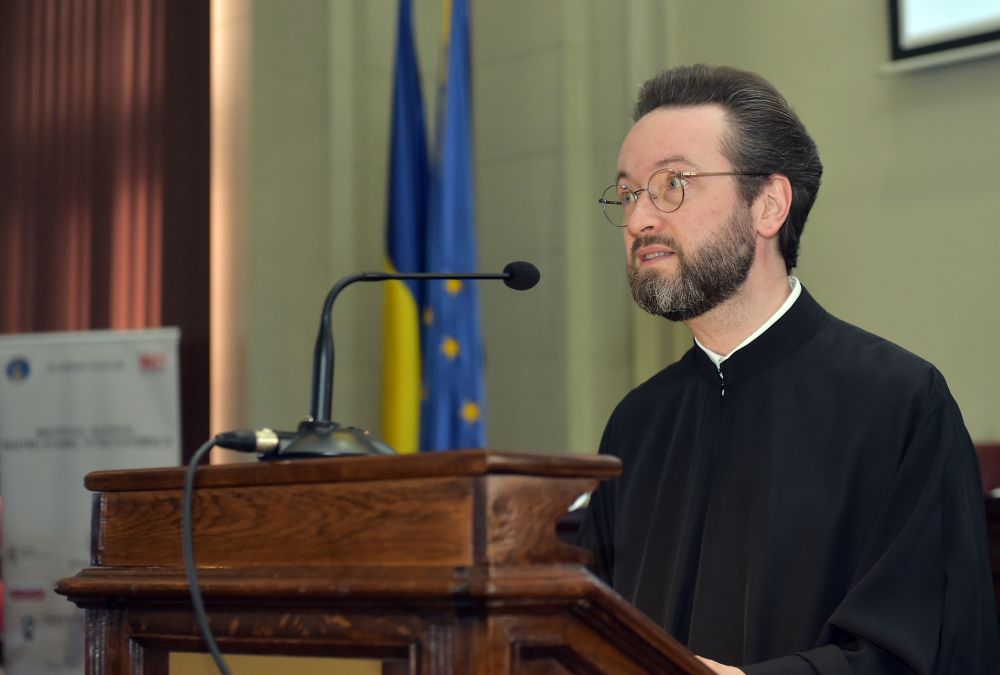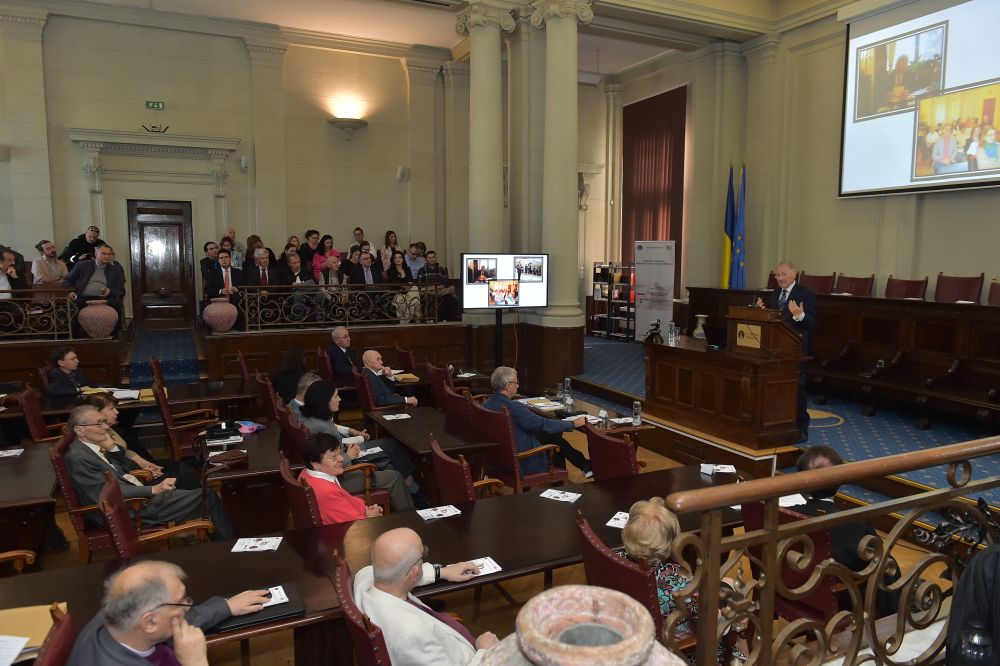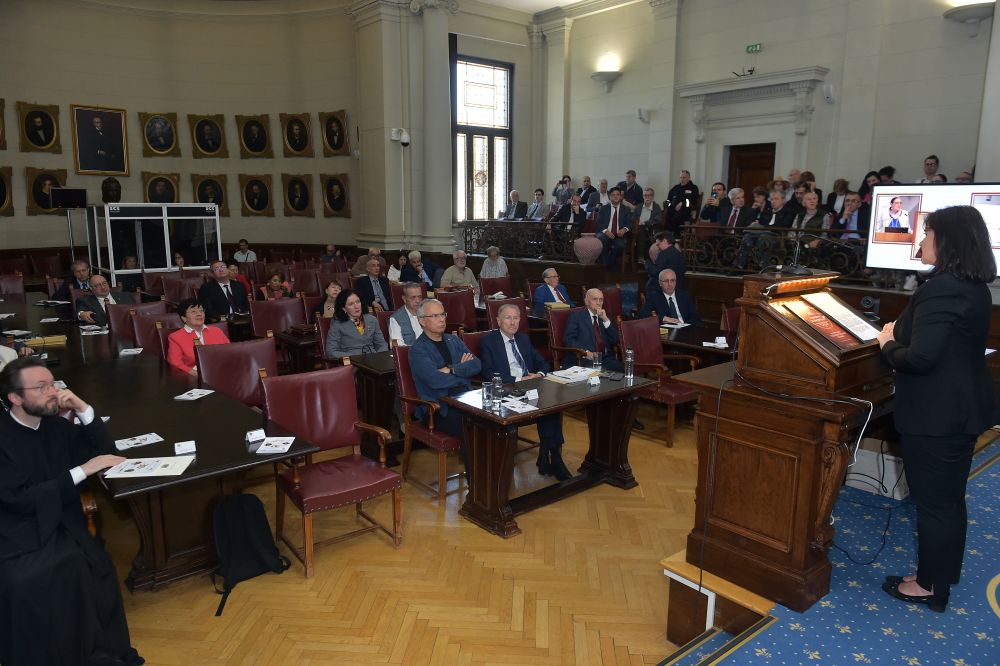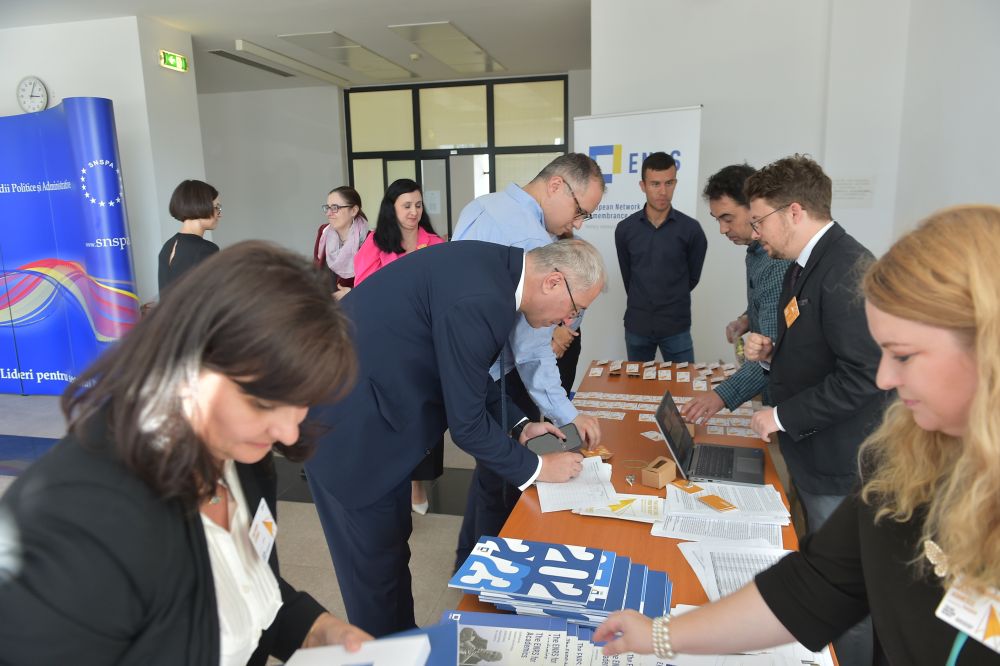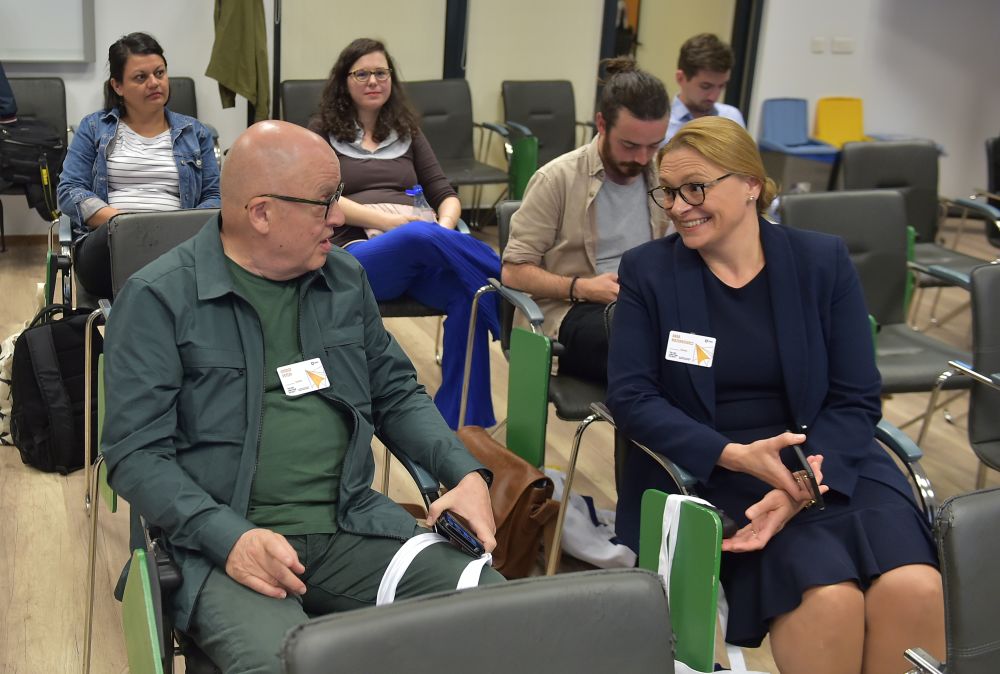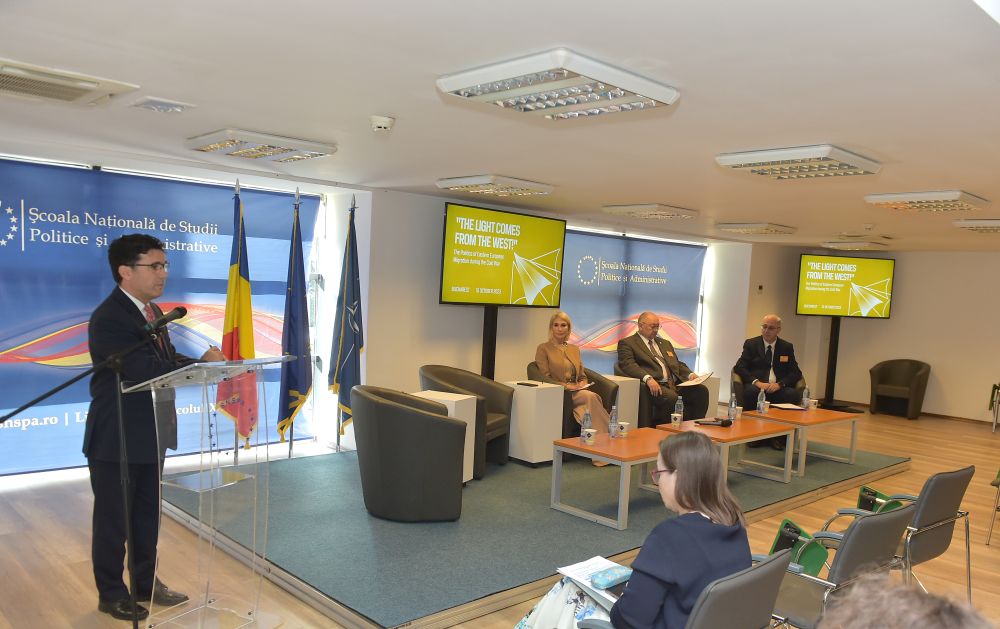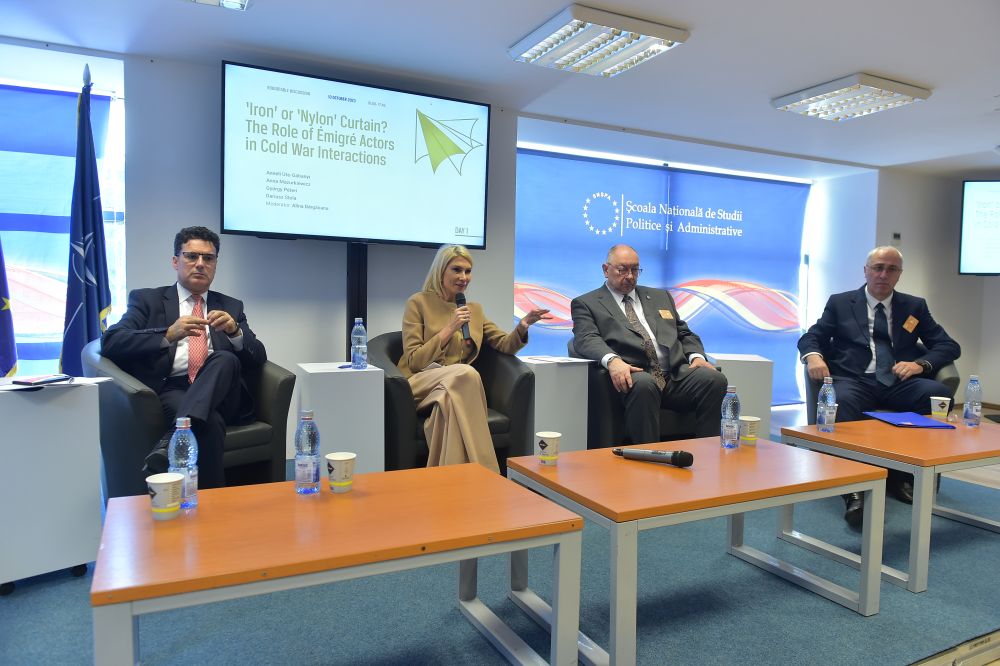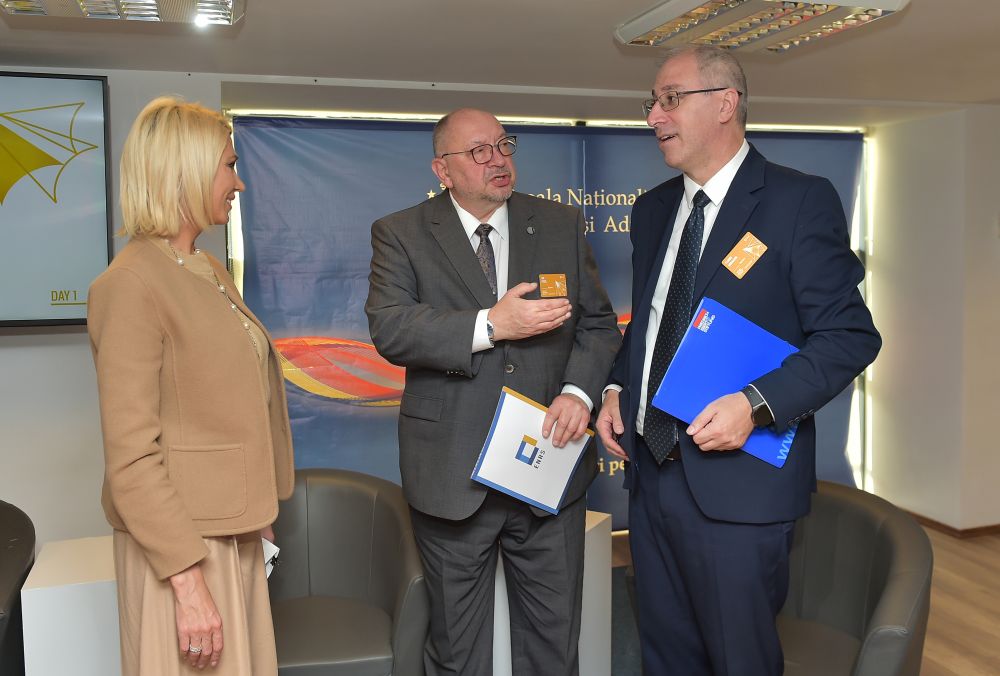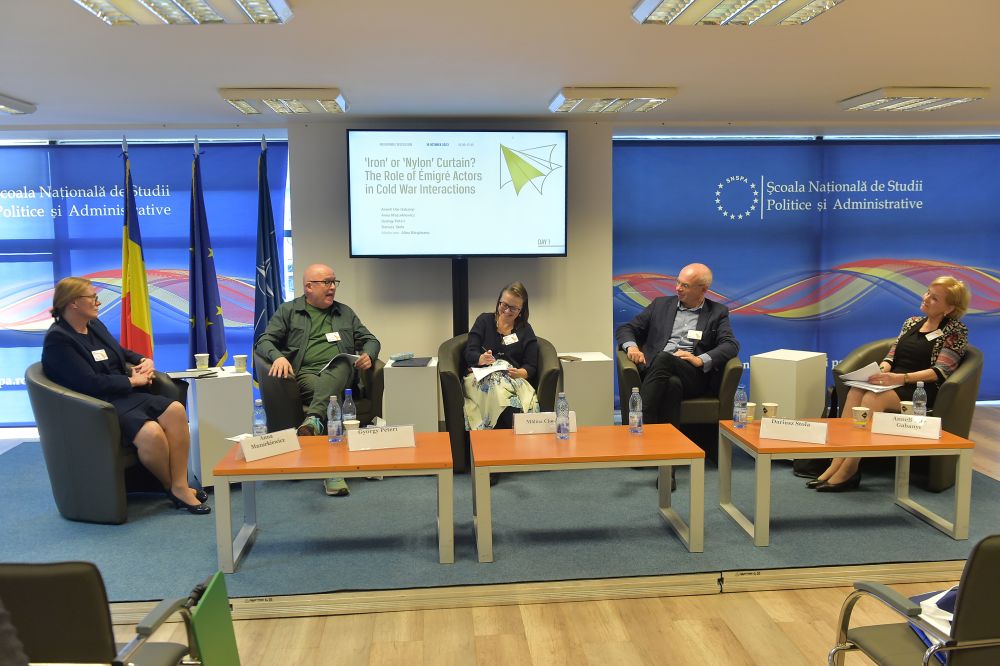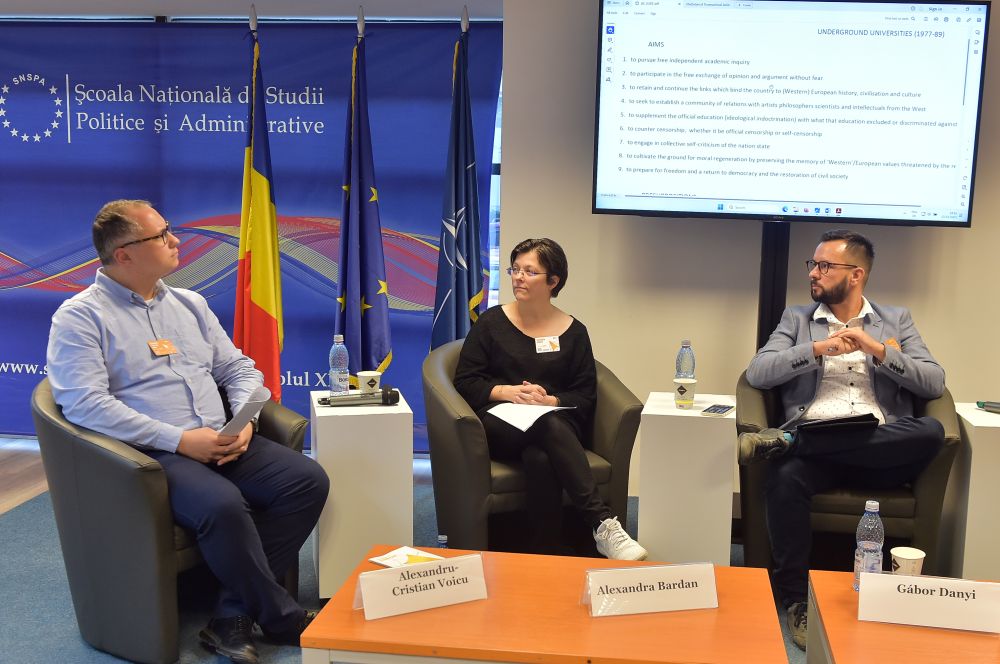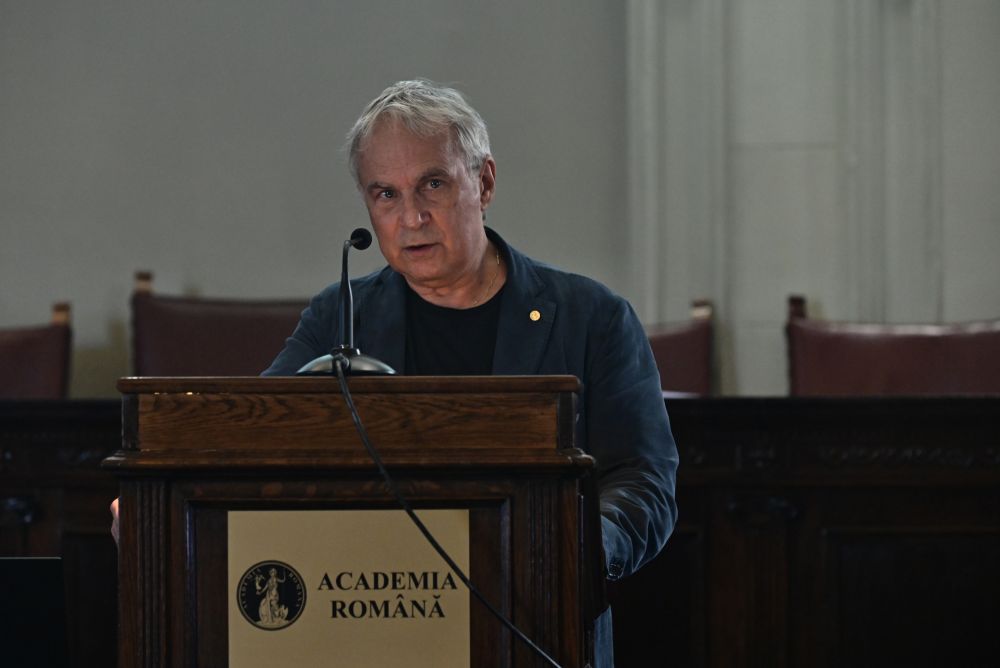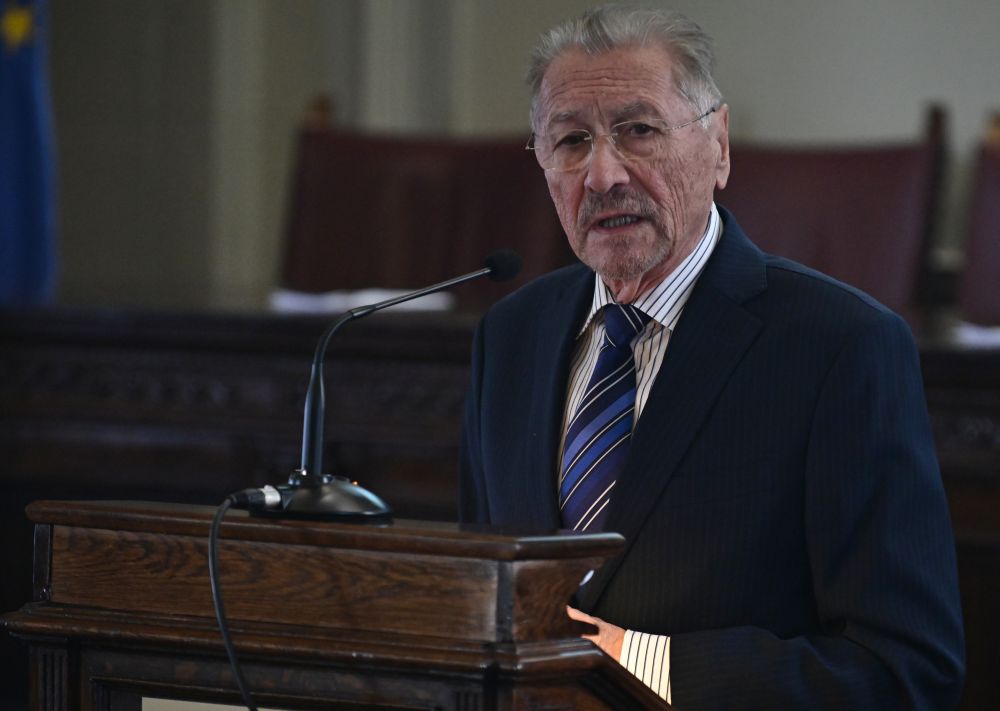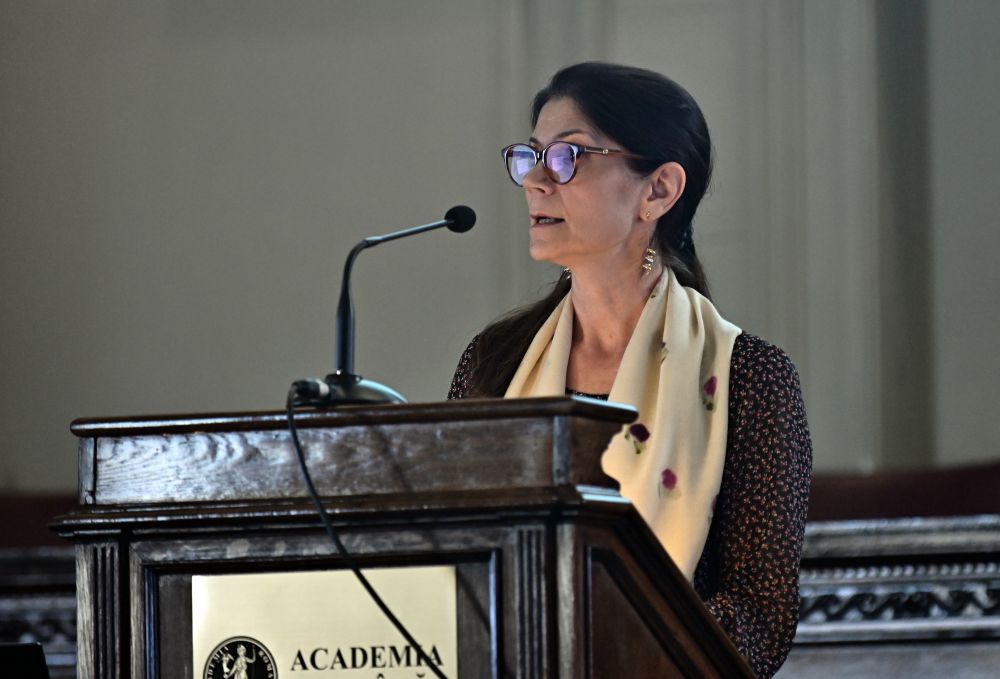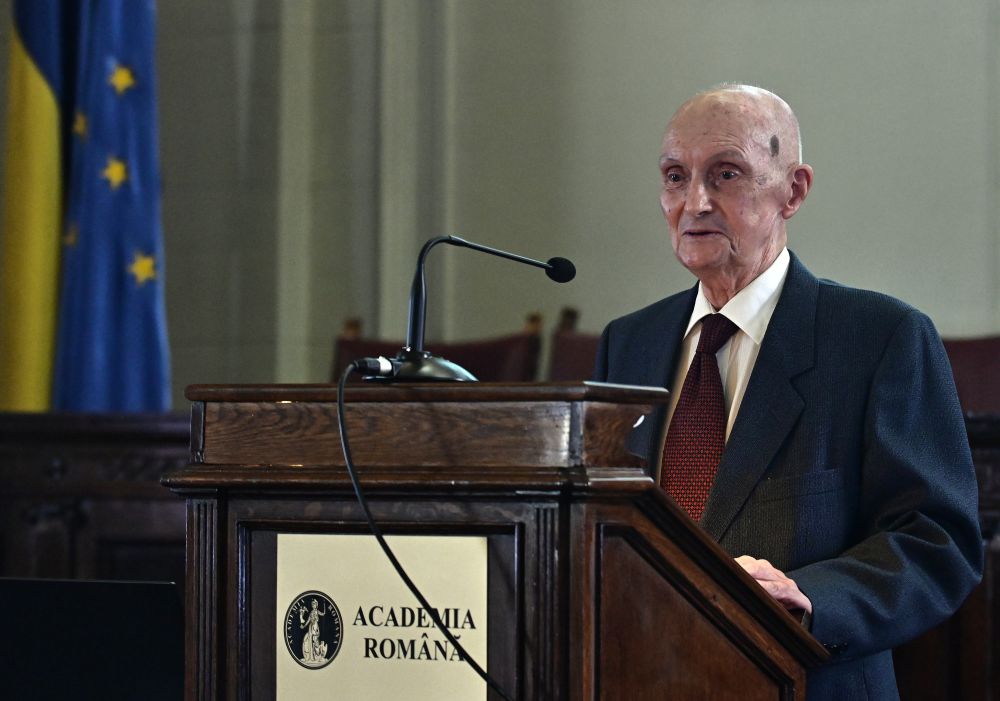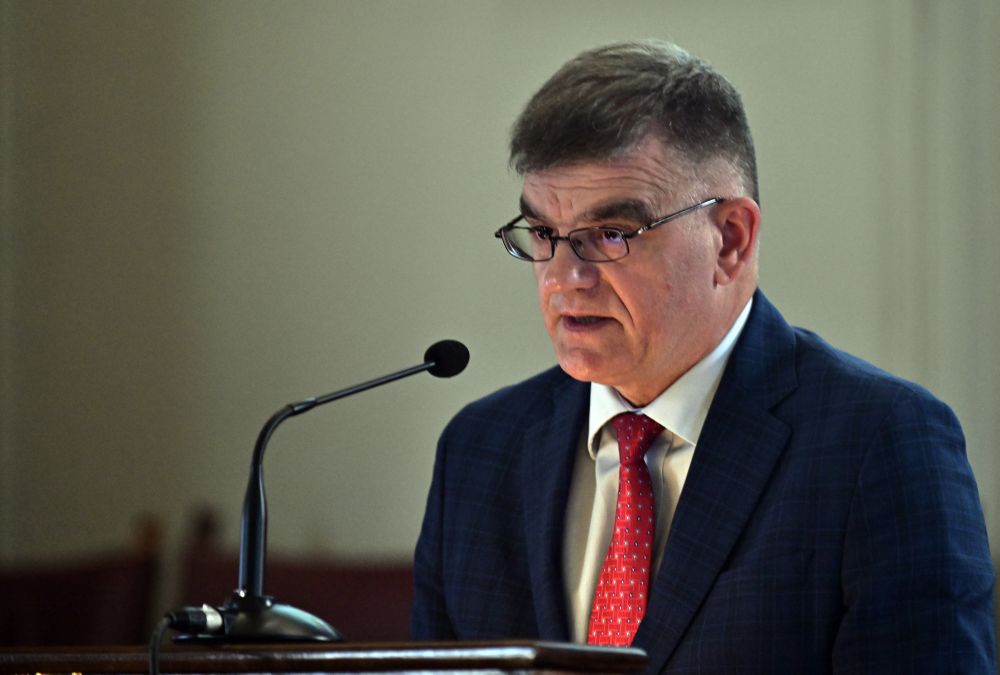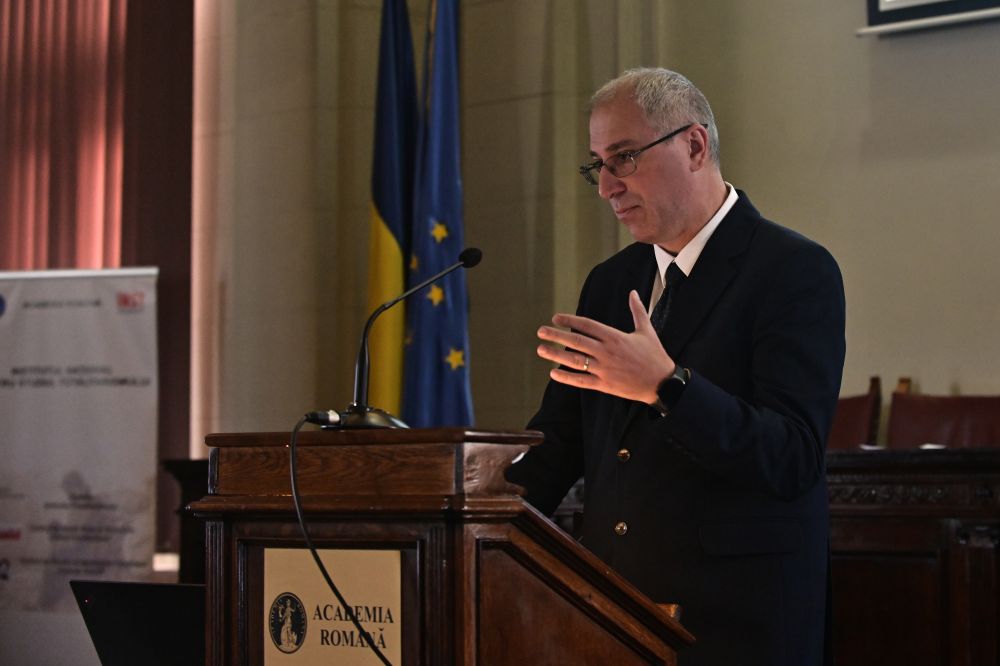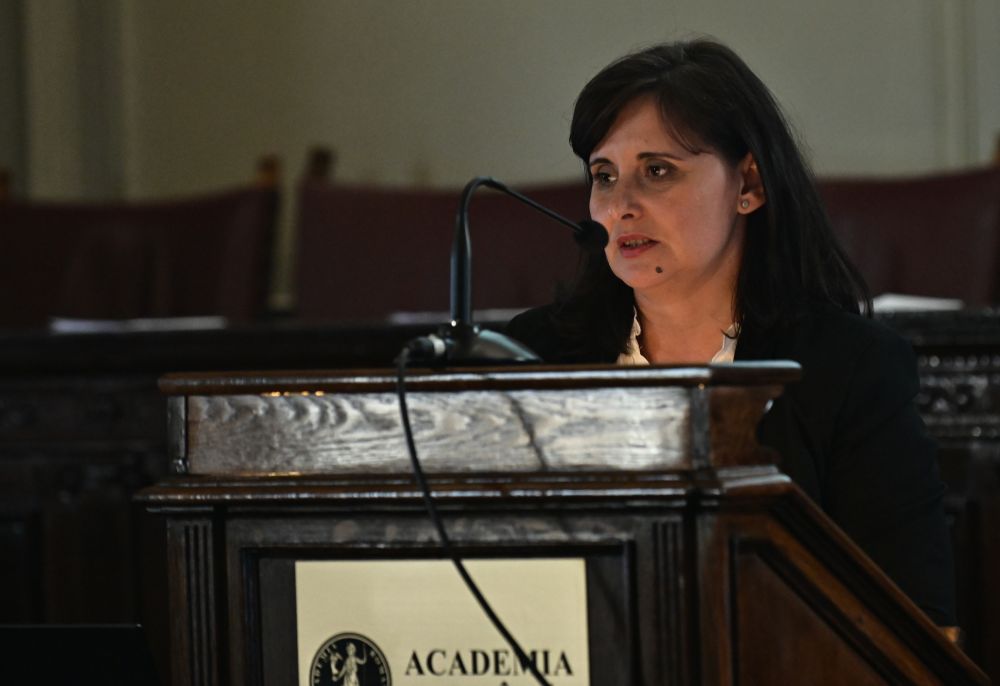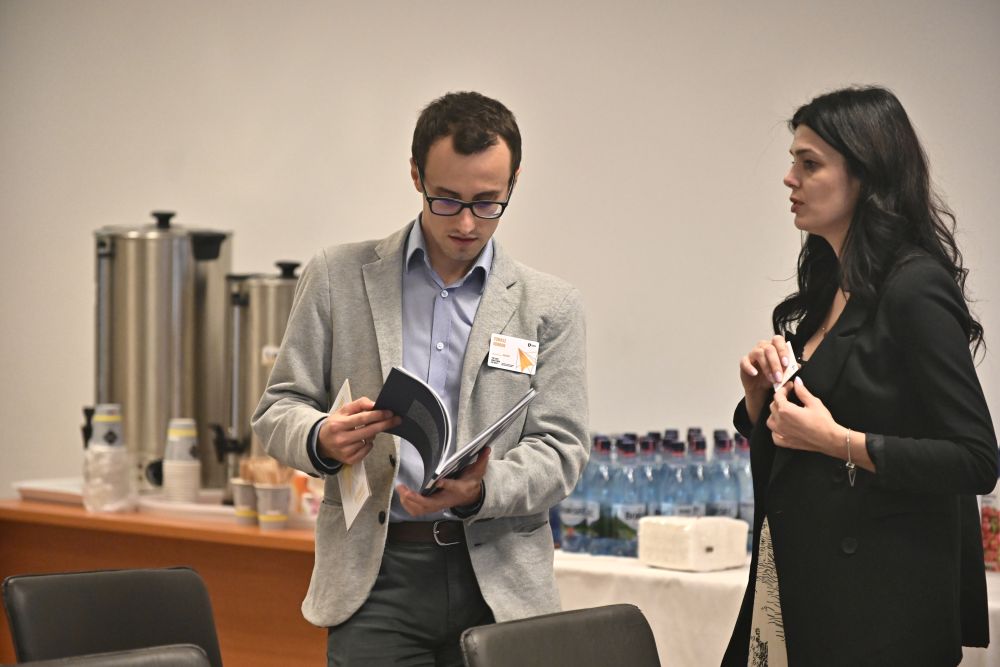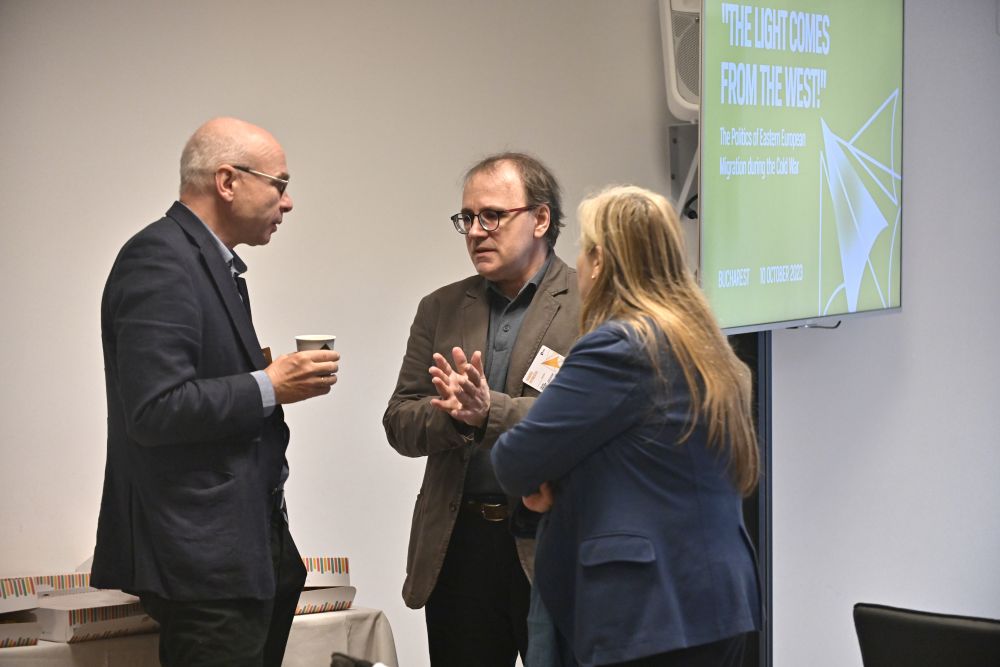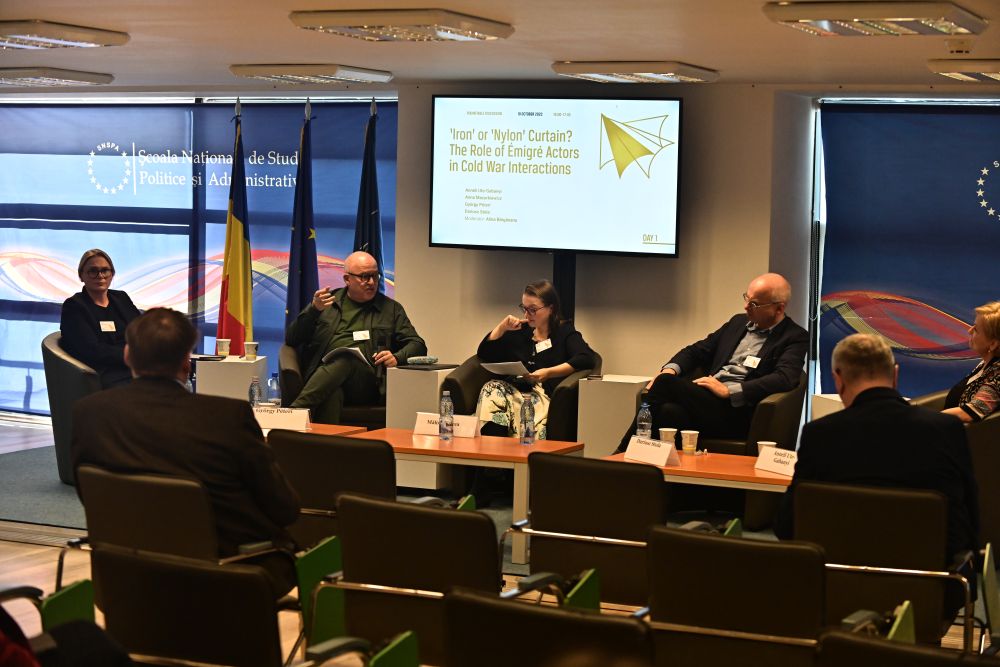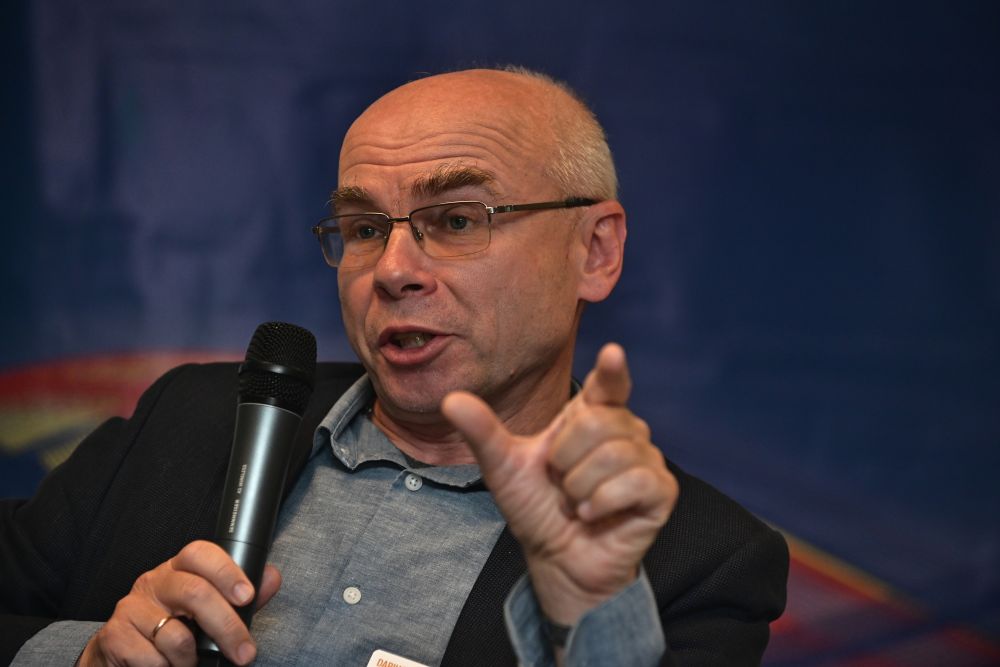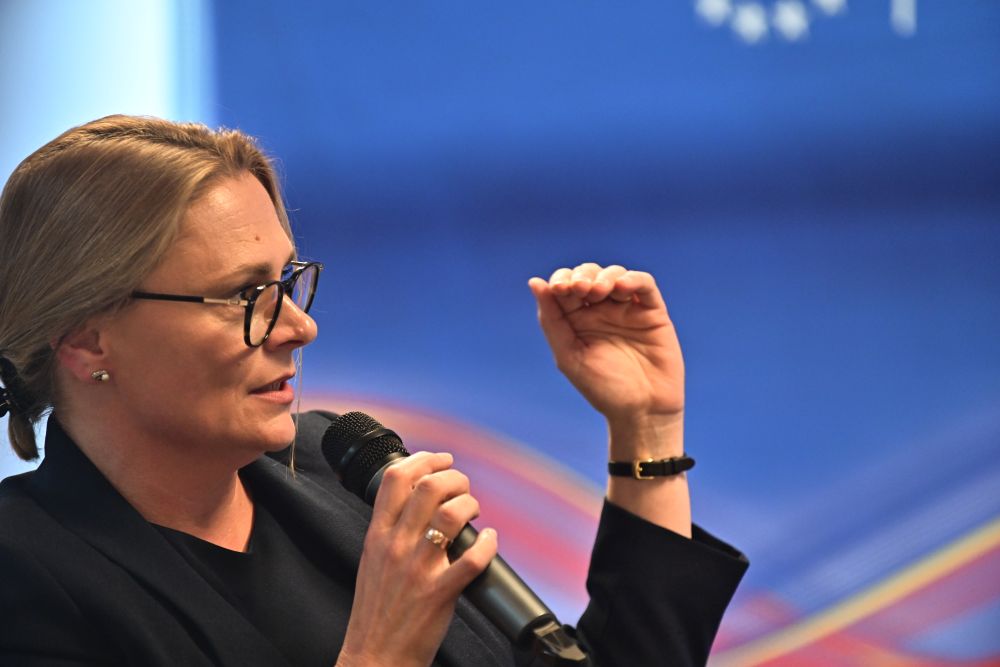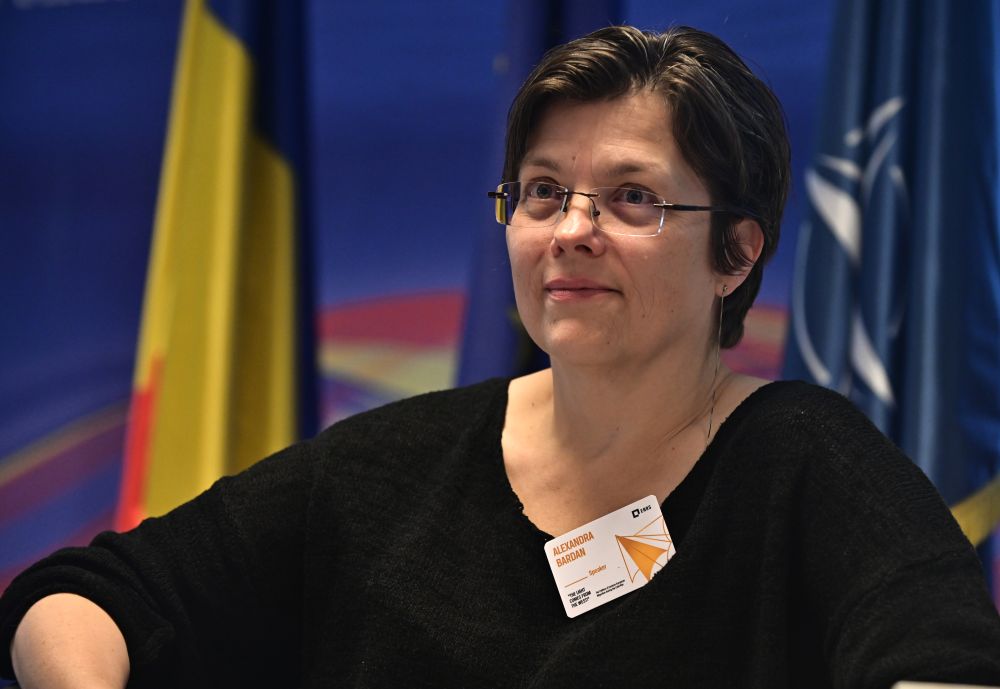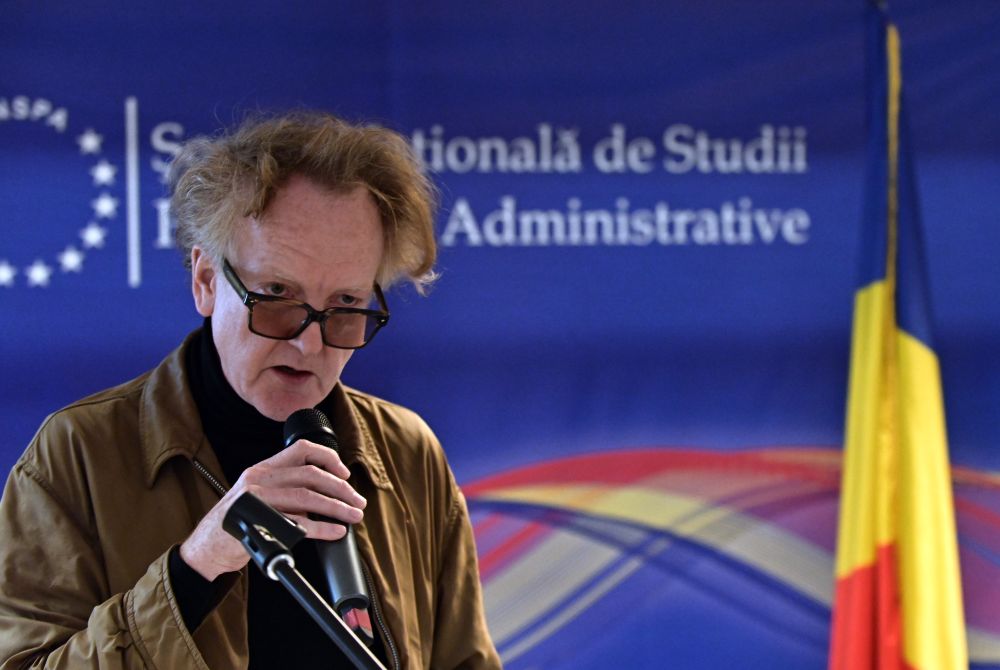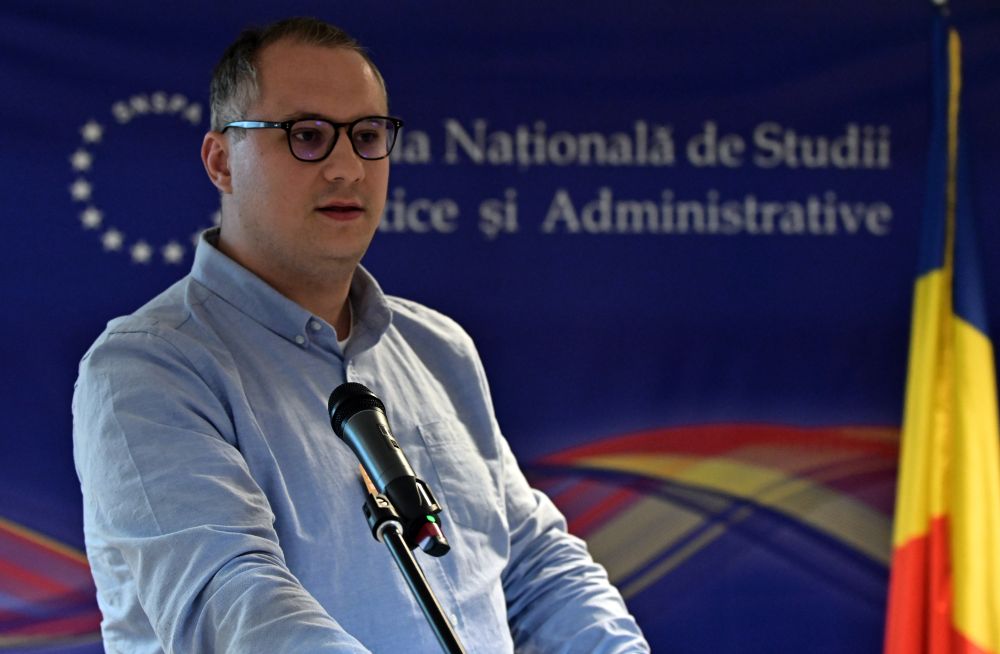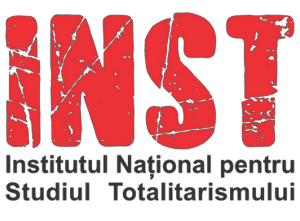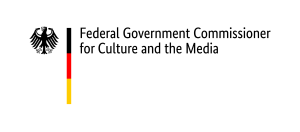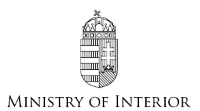10 October 2023 (Tuesday)
Conference venue: Multifunctional Hall, National University of Political Studies and Public Administration (Bulevardul Expoziției 30A, București 012244)
15:30–16:00 – Conference Opening
16:00–17:45 – ‘Iron’ or ‘Nylon’ Curtain? The Role of Émigré Actors in Cold War Interactions (roundtable discussion)
Moderator: Alina Bârgăoanu (Dean of the College of Communication and Public Relations, National University of Political Studies and Public Administration, Bucharest, Romania)
Speakers:
Anneli Ute-Gabanyi (Emeritus International Scholar, Historian & Political Scientist)
Anna Mazurkiewicz (University of Gdansk, Poland)
György Péteri (Norwegian University of Science and Technology, Trondheim, Norway)
Dariusz Stola (Institute of Political Studies, Polish Academy of Sciences, Warsaw, Poland)
17:45–18:00 – Coffee Break
18:00–19:30 – PANEL ONE: Diffusion of Ideas, Cultural and Economic Goods During the Cold War
Moderator: Gábor Danyi (European Network Remembrance and Solidarity, Warsaw, Poland)
Jonathan Lahey Dronsfield (Institute of Philosophy, Czech Academy of Sciences, Prague, Czechia)
Transnational migration of ideas and their space: clandestine universities in Eastern Europe
Alexandru-Cristian Voicu (National Institute for the Study of Totalitarianism of the Romanian Academy, Bucharest, Romania)
Members of the Iron Guard exiled in Spain and expressions of propaganda through philately; a case study: ‘Cinderella stamps’ in exile
Alexandra Bardan (University of Bucharest, Romania)
Mediators of transnational solidarity aid in Romania during the 1980s
11 October 2023 (Wednesday)
Conference venue: Ion Heliade Rădulescu Amphitheatre, Library of the Romanian Academy (Calea Victoriei 125, Bucharest 010071)
9:00–10:45 – PANEL TWO: Cold War Migration: Theoretical and Methodological Questions
Moderator: Mihail E. Ionescu (National University of Political Studies and Public Administration, Bucharest, Romania)
Péter Bencsik (University of Szeged, Hungary)
Migration policies of the East-Central European communist regimes compared
Ioana Macrea-Toma (Vera & Donald Blinken Open Society Archives, Budapest, Hungary)
’Fleeing‘ or not: the complexities of a tactical game between the dissidents and the Securitate
Corina Doboș (National Institute for the Study of Totalitarianism of the Romanian Academy, Bucharest, Romania)
Producing emigration and immigration data during the 1950s and 1960s: between secrecy and policy in communist Romania
Bianca-Florentina Cheregi & Florența Toader & Mălina Ciocea (National School of Political Science and Public Administration, Bucharest, Romania)
Transnational social fields and the politics of belonging in diasporic and national communities then and now: a comparative approach
10:45–11:00 – Coffee break
11:00–12:45 – PANEL THREE: Strategies in East-Central European Cold War Migration
Moderator: Cosmin Budeancă (Institute for the Investigation of Communist Crimes and the Memory of Romanian Exile, Bucharest, Romania)
Tomasz Korban (Pedagogical University of Krakow, Poland)
LOT Polish Airline: landet oft in Tempelhof; aircraft hijacking in the Polish People’s Republic
Dragoș Petrescu (University of Bucharest, Romania)
Avenues of escape: tourism as a strategy to exit communist Romania (1967–69)
Camelia Runceanu (independent scholar, Bucharest)
Romanian intellectuals in the West: refuge, exile and mobility
Florin Zyberaj & Brisejda Lala (Institute for the Studies of the Communist Crimes and Consequences in Albania)
The establishment of communism and the escape of political opponents from Albania, (1944–47)
12:45–13:45 – Lunch (Swedish buffet at conference venue)
13:50–15:50 – PANEL FOUR: Actors, Institutions and Networks in East-Central European Cold War Migration
Moderator: Ioan M. Ioniță (editor-in-chief of Historia and Foreign Policy)
Lucian Vasile (Institute for the Investigation of Communist Crimes and the Memory of the Romanian Exile, Bucharest, Romania)
The missing team: the curious case of the Pascal group’s double agents (1953–1955)
Benedetta Fabrucci (University of Trieste, Italy)
Refugees from the East: foreigners at the Italian northeastern border in the 1950s and 1960s
Mioara Anton (National Institute for the Study of Totalitarianism of the Romanian Academy, Bucharest, Romania)
The impossible escape: the Ceaușescu regime and the emigration tax (November 1982)
Andrei-Dumitru Olteanu (Babeș-Bolyai University, Cluj-Napoca, Romania)
Memories without borders: Romanian migration during the Ceaușescu regime and its connections to exile diasporas in France and Great Britain
16:00–17:45 – a visit to the House of Ceaușescu Museum
Guided tour in English (only for conference speakers)
Bulevardul Primăverii 50, Bucharest
12 October 2023 (Thursday)
Conference venue: Ion Heliade Rădulescu Amphitheatre, Library of the Romanian Academy (Calea Victoriei 125, București 010071)
09:00–10:30 – PANEL FIVE: The Role of Migrants in the Fight for Human Rights
Moderator: Andrei Florin Sora (University of Bucharest, Romania)
Ana Maria Cătănuș & Dan Cătănuș (National Institute for the Study of Totalitarianism of the Romanian Academy, Bucharest, Romania)
Turning émigrés into human rights activists: Romanian military exile in France during the 1970s and 1980s
Cristina Petrescu (University of Bucharest, Romania)
Human rights as a toolkit for migration: the Goma movement of 1977 in Romania and its aftermath
Beáta Katrebová Blehová (Nation’s Memory Institute, Bratislava, Slovakia)
The Slovak World Congress (1971) and human rights
10:30–10:45 – Coffee break
10:50–12:50 – PANEL SIX: Cold War Perceptions and Dynamics of Soft Power
Moderator: Florin Abraham (National Institute for the Study of Totalitarianism of the Romanian Academy, Bucharest, Romania / ENRS)
Adrian Pop (National University of Political Studies and Public Administration, Bucharest, Romania)
American perceptions of the Romanian exile circles in France at the beginning of the 1950s
Erzsébet Árvay (Corvinus University, Budapest, Hungary)
Shaping the diasporans’ perception of the home country: the State Office for Church Affairs within the Hungarian community during the Cold War
Luke Dodds (KADOC Documentation and Research Centre on Religion Culture and Society at KU Leuven, Belgium)
God as a guiding force: Belgian Catholics’ interactions with ’old‘ and ’new‘ Polish émigrés in the 1970s and 1980s
Constantin Buchet (National Institute for the Study of Totalitarianism of the Romanian Academy, Bucharest, Romania)
Romanian military exile in the West and military diplomacy against the communist regime
12:50–13:00 – Closing Remarks

